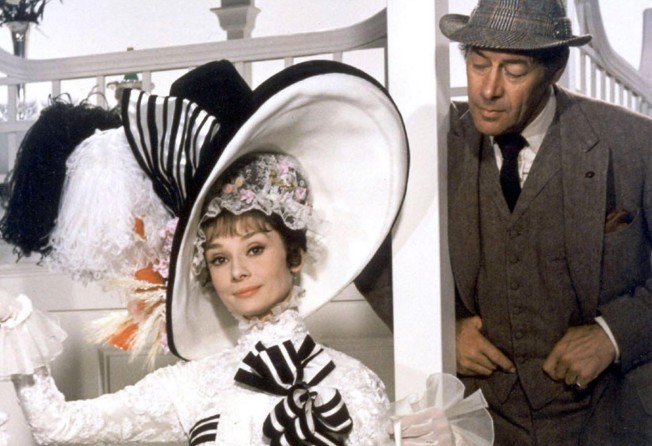
My Fair Lady is 50 years old but still young at heart

My Fair Lady
Audrey Hepburn, Rex Harrison, Wilfrid Hyde-White
Director: George Cukor

That's My Fair Lady in a nutshell: released almost 50 years ago today, the film is a classic - a nearly three-hour-long rags-to-riches tale of high drama, glittering silver-screen stars and wonderfully catchy songs.
But it's also an unconventional tale in the musical world, based as it is on George Bernard Shaw's 1912 play Pygmalion. Along with rousing songs, there's an undercurrent of politics and philosophy behind the film, Shaw's shrewd dialogue and witty asides satirising issues such as the British class system and misogynism.
The film is a blend of both worlds, a meeting between Shaw's ethical concerns and the adaptation's Broadway-themed sensibilities. Alongside similarly issue-driven musicals of its time such as West Side Story and The Sound of Music, My Fair Lady signalled a change in Hollywood, one that ditched the previously delude-the-public approach and took on the zeitgeist of its empowering 1960s era, paving the way for modern movies.
But for all that My Fair Lady is stuck in our collective consciousness, it was a casting change that led to the film's major success: the original production starred Julie Andrews, then a fresh-faced stage star with no movie credits. Not wanting to take a gamble, the producers hired Audrey Hepburn.
It was a fortuitous decision because along with her fan club's almost creepy obsession with Breakfast at Tiffany's, this is the film that all but created the Audrey cult. Hepburn was the ideal cinema star: an actress with an adorable face and a stunning smile, her undeniable charm and magnetism absolutely appealing when seen on a 40-foot screen.
Here, her star shines incredibly brightly, whether as the crass peasant girl you can't help but love, or the perfectly composed debutante. That's most apparent in the embassy ball scene, a 10-minute-long sequence where Hepburn says little more than a word, but wins over not only the well-heeled crowd, but the captivated audience as well.
Change can be a funny thing. For My Fair Lady, slight changes in its lead and in its approach to a musical led to its success. The film might take ideas of "being the change you wish to see" to an extreme degree, but many forget that's part of the point. After all, there's nothing fair about becoming a lady.